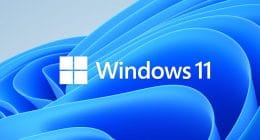Even before the global pandemic, many businesses and event organizers have recognized the potential benefits of virtual conferences, especially in their ability to reach international and even global audiences without having to worry about geographical limitations.
However, it’s also true that the COVID-19 quarantines and closures have also allowed a massive rise in virtual events. Everybody is now doing virtual events, and so the competition is tighter than ever before.
With the more challenging competition, now having the right event marketing strategy is a must if you want to attract enough attendees, and the right attendees, to your event.
Here, we will share some actionable online event marketing ideas you can use when planning your next online event. By the end of this guide, you’re ready to plan your most successful virtual event yet.
The foundation: know the event’s purpose and audience
This might seem like an overused marketing cliché, but we can’t simply deny the importance of knowing your target audience when marketing your online event.
Start by figuring out what’s the purpose for hosting the event.
For some events, this might be quite obvious: building awareness for your brand, supporting a product launch, and so on. But for others, it might not be so obvious at first.
Nevertheless, identify the purpose, break it down into SMART goals, and identify the ideal audience that can help you achieve these goals.
Once you’ve identified your audience, build a buyer persona and identify as much information as you can about these target attendees: what types of events they often attend? Who are the speakers/talents they might be interested in? And so on.
The better you can design an event that caters to this target audience’s needs and preferences, the more attendees you can attract.
Divide your marketing efforts into phases
A common marketing strategy when promoting in-person events is to launch your marketing efforts in a timeline: pre-sale efforts, early-bird, last call before D-day, and so on. This is possible because most traditional events have a long, 6-12 months preparation time.
In an online event marketing, however, we tend to have a much shorter timeline, typically not more than 3 months in advance. However, we can still divide the online event marketing efforts in phases:
Before the event
- Identifying your purpose and your audience
- Creating and optimizing registration page
- Email marketing and direct mail campaigns
- Social media marketing (contests, giveaways, influencer marketing)
During the event:
- Sending reminder emails
- Live social media posts (live Tweets)
- Sending virtual swag bags
- Interactive chat to answer attendees’ questions
- Run engaging activities
After the event
- Sending follow up emails and post-event surveys
- Sending emails for no-shows (“we are sorry we missed you”
- Update website and social media profiles for post-event content
- Send invitations to your next event
- Compiling contact information gathered (email address) and begin a lead nurturing campaigns
Build an optimal event page
A well-designed and functional event page is crucial for an online event. Ideally, you should make a dedicated landing page that is still part of your business’s main domain, even if you already have a functional website.
Also, your social media profiles are not direct replacements for an event page.
Your event page should:
- Include complete and accurate information about the event :
- Time and date
- Agenda/schedule
- Sponsor information
- Platform/links
- Have functional registration/sign up features
- Include online event registration software that has secure payment options
Optimize the event page as much as you can: make sure it’s mobile-friendly, loads fast, and optimize the page for SEO by targeting relevant keywords.
In short, your event page should be visible, well-designed, informative, and functional.
Effective social media marketing
In this day and age where all your potential attendees are active on social media, it would only make sense to promote your event on social media.
However, everybody else is doing the same, and so how can you make sure your promotional efforts get noticed amidst all the noises?
First, it’s crucial to embrace the reality that social media marketing today is pay to play. You can’t solely rely on organic reach, but you’ll need to invest in paid advertising and influencer marketing.
Think of organic vs paid social media efforts as the case of time vs cost: organic efforts are affordable and even free, but it will take some time to generate results. Paid efforts, on the other hand, can guarantee the quick results you need, but can be expensive.
Finding the balance is key.
Ask your partners, talents, and sponsors for help
Don’t be afraid to ask your speakers/talents, sponsors, partners, and even vendors to help promote your online event.
Especially for speakers and sponsors, it will also benefit them if your event is successful, so most likely they’ll be happy to help.
Make it as easy as possible for them, and provide all the key information and materials they may need to advertise your online event.
Event press release
Involve relevant media and websites in your online event marketing efforts. They need content and news, and you need coverage, so sending them an event press release is a win-win situation.
Send your press release early enough so people have enough time to register for your event, but not too early. Timing is key. Keep your press release short, attractive, and informative.
Leverage email marketing
Email marketing is a very effective tool in promoting events, both in-person and virtual events, and it is especially powerful if you’ve already collected enough email addresses from your past events.
Send at least three reminder emails before the event. You should also send reminders to people who registered but haven’t joined the event.
Also, don’t forget to send a follow-up email after the event, and you can also send post-event surveys and invitations for future events on the email.
Closing Thoughts
While marketing an online event might be difficult at first, it doesn’t have to be too stressful, and the secret remains to know and understand your target audience well.
Identify the purpose of your event, identify the right audience that will help you fulfill this purpose, and research these target attendees thoroughly. If you can make sure your event is attractive and valuable for these target attendees, your online event marketing will be a breeze.



